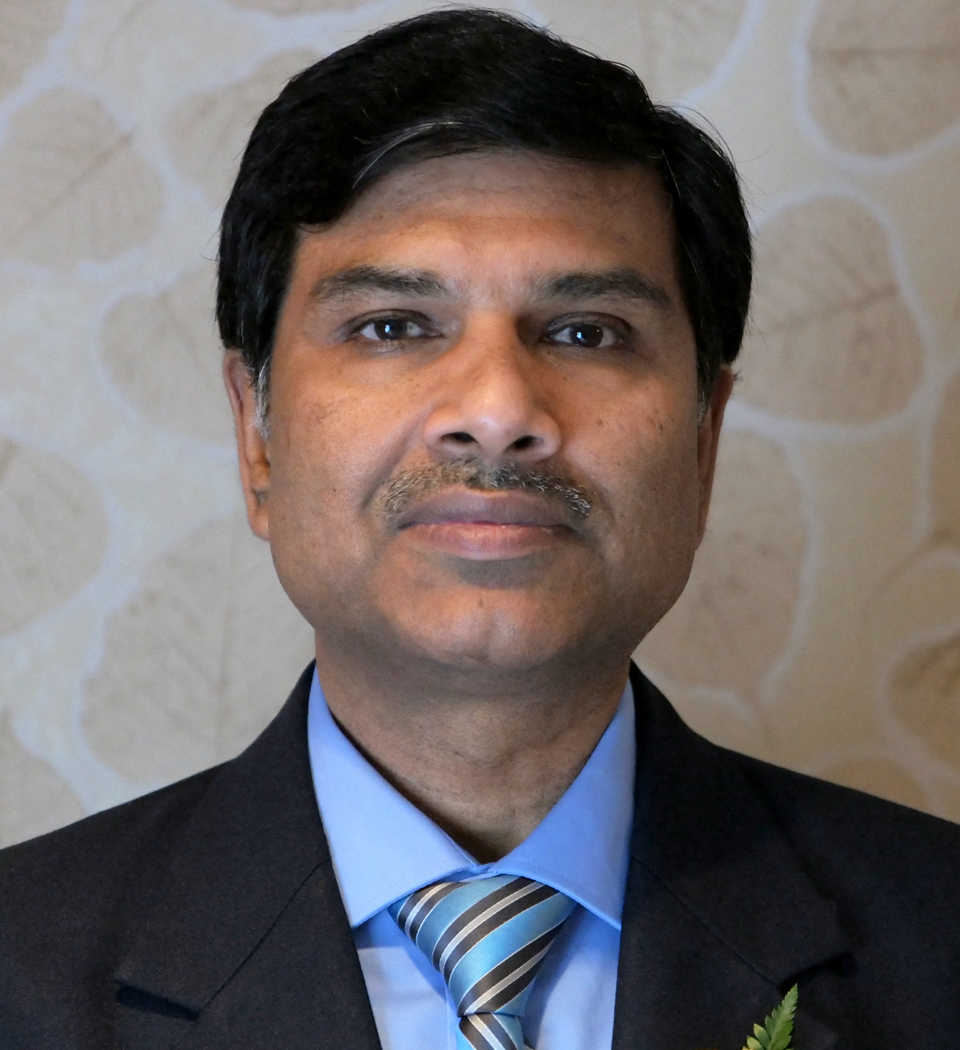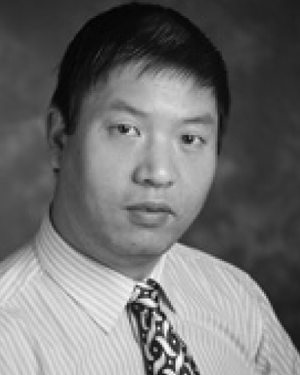AP-S COPE Project: Laser for detecting and monitoring the carbon footprint in the atmosphere
#Antenna
#LIDAR
#InP
#Wireless
#RADAR
#Sensors
#Global
#Warming
#Climatic
#Changes
Utilizing Indium Phosphide (InP) lasers within a LIDAR (Light Detection and Ranging) system presents an advanced and effective approach for detecting and monitoring atmospheric carbon footprints. This technology capitalizes on the unique absorption features of carbon-based gases, such as carbon dioxide (CO₂) and methane (CH₄), enabling precise measurements of their concentrations in the atmosphere. Implementing InP lasers in LIDAR systems is crucial for various applications, including environmental monitoring and climate change research. By providing real-time data on greenhouse gas emissions, this technology enhances our understanding of anthropogenic impacts on climate change and facilitates informed policymaking aimed at emission reduction.
Despite its potential, the practical deployment of this technology must overcome several challenges. Atmospheric conditions, such as humidity, temperature, and particulate matter, can affect the sensitivity and accuracy of measurements. Therefore, robust calibration methods are essential for reliable data collection. Additionally, the effective measurement range, which can be influenced by the laser's power and environmental factors, needs careful consideration to ensure meaningful results over various distances and conditions. Addressing these challenges will be vital for maximizing the effectiveness of InP lasers in LIDAR systems for carbon footprint monitoring.
Date and Time
Location
Hosts
Registration
-
 Add Event to Calendar
Add Event to Calendar
Loading virtual attendance info...
-
McLean Blvd.
-
Paterson, New Jersey
-
United States
07504
-
Building:
201

- Starts
01 November 2024 02:00 PM UTC
- Ends
09 November 2024 05:00 AM UTC
- No Admission Charge
Speakers
Dr. Ing. Habil Ajay K. Poddar of Synergy Microwave Corp.
Topic:
AP-S COPE Project: Laser for detecting and monitoring the carbon footprint in the atmosphere
Biography:
 Ajay K. Poddar, an IEEE Fellow and member of IEEE Eta-Kappa-Nu, serves as the Chief Scientist at Synergy Microwave, NJ, USA. He is tasked with designing and developing signal generation and processing electronics, RF-MEMS, and Metamaterial-Sensors/Electronics for various applications, including industrial, medical, and space. Additionally, he holds positions as a visiting professor at the University of Oradea, Romania, and the Indian Institute of Technology Jammu, India, as well as a guest lecturer at the Technical University of Munich, Germany. His earlier tenure (1991-2001) includes roles as a Senior Scientist and Program Manager at DRDO (Defense Research and Development Organization), Ministry of Defense, India, and as a visiting Professor at the University of Pune, India. Dr. Poddar's academic credentials include a graduation from IIT-Delhi, India; a Doctorate (Dr.-Ing.) from Technical University Berlin, Germany; and a Post Doctorate (Dr.-Ing. habil) from Brandenburg Technical University Cottbus, Germany. His accolades encompass over a dozen awards, notably the 2015 IEEE IFCS Cady Award for significant scientific contributions to frequency-generating and frequency-controlled electronics and timing devices, the 2018 IEEE MGA Innovation Award for volunteer service, the 2015 IEEE R1 Award for scientific contributions and leadership, and the 2009 IEEE R1 Award for leadership in microwave system research and development. He was also featured as a 'Divine Innovator' in the Microwave Journal's November 2011 issue. Dr. Poddar has published over 350 scientific papers, co-authored five technical books/chapters, and holds over 40 patents for his scientific and technological innovations.
Ajay K. Poddar, an IEEE Fellow and member of IEEE Eta-Kappa-Nu, serves as the Chief Scientist at Synergy Microwave, NJ, USA. He is tasked with designing and developing signal generation and processing electronics, RF-MEMS, and Metamaterial-Sensors/Electronics for various applications, including industrial, medical, and space. Additionally, he holds positions as a visiting professor at the University of Oradea, Romania, and the Indian Institute of Technology Jammu, India, as well as a guest lecturer at the Technical University of Munich, Germany. His earlier tenure (1991-2001) includes roles as a Senior Scientist and Program Manager at DRDO (Defense Research and Development Organization), Ministry of Defense, India, and as a visiting Professor at the University of Pune, India. Dr. Poddar's academic credentials include a graduation from IIT-Delhi, India; a Doctorate (Dr.-Ing.) from Technical University Berlin, Germany; and a Post Doctorate (Dr.-Ing. habil) from Brandenburg Technical University Cottbus, Germany. His accolades encompass over a dozen awards, notably the 2015 IEEE IFCS Cady Award for significant scientific contributions to frequency-generating and frequency-controlled electronics and timing devices, the 2018 IEEE MGA Innovation Award for volunteer service, the 2015 IEEE R1 Award for scientific contributions and leadership, and the 2009 IEEE R1 Award for leadership in microwave system research and development. He was also featured as a 'Divine Innovator' in the Microwave Journal's November 2011 issue. Dr. Poddar has published over 350 scientific papers, co-authored five technical books/chapters, and holds over 40 patents for his scientific and technological innovations.
Address:New Jersey, United States
Dr. Jawad Siddiqui of Royal Military College of Canada, Queens University
Topic:
AP-S COPE Project: Laser for detecting and monitoring the carbon footprint in the atmosphere
Biography:
 Jawad Y. Siddiqui is an Associate Professor at the Institute of Radio Physics and Electronics, University of Calcutta, India. He received his Doctor of Philosophy degree in Radio Physics and Electronics, from the University of Calcutta in 2005. He worked as a Post Doctoral Fellow at the Royal Military College of Canada and Visiting Researcher at Queen’s University, Canada in different periods from 2008 to 2021. He has more than 150 publications in peer-reviewed journals and conferences. His research areas include printed circuits and antennas, radar, and nano-photonics. He is a Co-Principal Investigator on the Stratosphere Troposphere (ST) Radar Project at the University of Calcutta. He is a Senior Member of the IEEE and was Chair for the AP-S and MTT-S Jt. Chapter in IEEE Kolkata Section and SIGHT Chapter, IEEE Kolkata Section. He is the R10 Coordinator (CAC) of the IEEE Antennas and Propagation Society. He is currently the IEEE AP-S SIGHT Chair and a Member of the IEEE Humanitarian Activities Committee. He is also a Member of the MTT-S Meetings and Symposia Committee. He is the recipient of the 2022 IETE S.N. Mitra Award.
Jawad Y. Siddiqui is an Associate Professor at the Institute of Radio Physics and Electronics, University of Calcutta, India. He received his Doctor of Philosophy degree in Radio Physics and Electronics, from the University of Calcutta in 2005. He worked as a Post Doctoral Fellow at the Royal Military College of Canada and Visiting Researcher at Queen’s University, Canada in different periods from 2008 to 2021. He has more than 150 publications in peer-reviewed journals and conferences. His research areas include printed circuits and antennas, radar, and nano-photonics. He is a Co-Principal Investigator on the Stratosphere Troposphere (ST) Radar Project at the University of Calcutta. He is a Senior Member of the IEEE and was Chair for the AP-S and MTT-S Jt. Chapter in IEEE Kolkata Section and SIGHT Chapter, IEEE Kolkata Section. He is the R10 Coordinator (CAC) of the IEEE Antennas and Propagation Society. He is currently the IEEE AP-S SIGHT Chair and a Member of the IEEE Humanitarian Activities Committee. He is also a Member of the MTT-S Meetings and Symposia Committee. He is the recipient of the 2022 IETE S.N. Mitra Award.
Email:
Address:Royal Military College of Canada, Queens University, , Canada
Prof. Meisong Tong of Tongji University, Shanghai, China
Topic:
AP-S COPE Project: Laser for detecting and monitoring the carbon footprint in the atmosphere
Topics: IEEE Initiatives on Climate Change, Effects of Technology on Environment, Effects of Environment on Technology
Biography:
 Mei Song Tong, a Senior Member of IEEE, earned his B.S. and M.S. degrees in electrical engineering from Huazhong University of Science and Technology in Wuhan, China, and his Ph.D. in electrical engineering from Arizona State University, Tempe, AZ, USA. He has served as an Adjunct Professor at the University of Illinois at Urbana–Champaign and as an Honorary Professor at The University of Hong Kong. Presently, he is the Distinguished Professor and Head of the Department of Electronic Science and Technology and the Vice Dean of the College of Microelectronics at Tongji University in Shanghai, China. He has published over 600 papers in refereed journals and conference proceedings and has coauthored six books or book chapters. His research interests span electromagnetic field theory, antenna theory and design, RF/microwave circuits and devices simulation and design, interconnect and packaging analysis, inverse electromagnetic scattering for imaging, and computational electromagnetics. Prof. Tong is a fellow of the Electromagnetics Academy and the Japan Society for the Promotion of Science (JSPS), and a Full Member (Commission B) of the USNC/URSI. His accolades include the Visiting Professorship Award from Kyoto University in 2012, the University of Hong Kong in 2013, the Best Student Paper Award advising and coauthoring at various international conferences, the Travel Fellowship Award of USNC/URSI at the 31st GASS in 2014, the Shanghai Municipal Government's Award for the Advance of Science and Technology in 2015, the JSPS Fellowship Award in 2016, the Ministry of Education of China's Innovation Award of Universities’ Achievements in 2017, the Industry-Academia-Research Collaboration Innovation Achievement Award of China in 2019, and the “Jinqiao” Award of the Technology Market Association of China in 2020.
Mei Song Tong, a Senior Member of IEEE, earned his B.S. and M.S. degrees in electrical engineering from Huazhong University of Science and Technology in Wuhan, China, and his Ph.D. in electrical engineering from Arizona State University, Tempe, AZ, USA. He has served as an Adjunct Professor at the University of Illinois at Urbana–Champaign and as an Honorary Professor at The University of Hong Kong. Presently, he is the Distinguished Professor and Head of the Department of Electronic Science and Technology and the Vice Dean of the College of Microelectronics at Tongji University in Shanghai, China. He has published over 600 papers in refereed journals and conference proceedings and has coauthored six books or book chapters. His research interests span electromagnetic field theory, antenna theory and design, RF/microwave circuits and devices simulation and design, interconnect and packaging analysis, inverse electromagnetic scattering for imaging, and computational electromagnetics. Prof. Tong is a fellow of the Electromagnetics Academy and the Japan Society for the Promotion of Science (JSPS), and a Full Member (Commission B) of the USNC/URSI. His accolades include the Visiting Professorship Award from Kyoto University in 2012, the University of Hong Kong in 2013, the Best Student Paper Award advising and coauthoring at various international conferences, the Travel Fellowship Award of USNC/URSI at the 31st GASS in 2014, the Shanghai Municipal Government's Award for the Advance of Science and Technology in 2015, the JSPS Fellowship Award in 2016, the Ministry of Education of China's Innovation Award of Universities’ Achievements in 2017, the Industry-Academia-Research Collaboration Innovation Achievement Award of China in 2019, and the “Jinqiao” Award of the Technology Market Association of China in 2020.
Agenda
Hybrid Meeting
Join Zoom Meeting
 Add Event to Calendar
Add Event to Calendar




